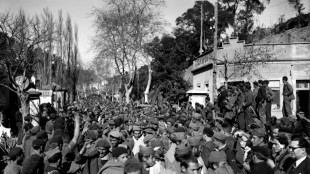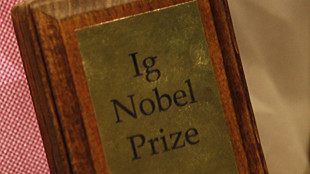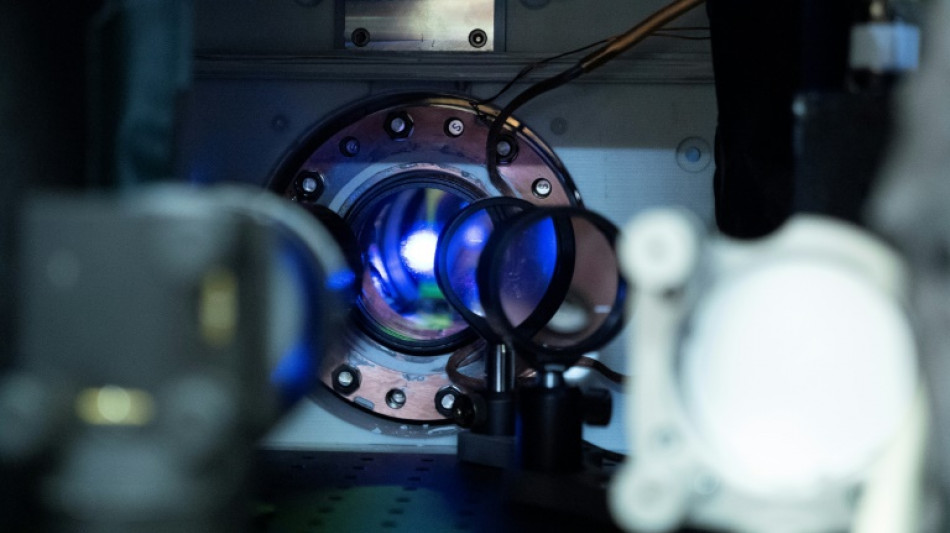
-
 Women sommeliers are cracking male-dominated wine world open
Women sommeliers are cracking male-dominated wine world open
-
Exhibition of Franco-Chinese print master Zao Wou-Ki opens in Hong Kong

-
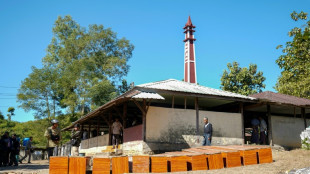 Myanmar junta denies killing civilians in hospital strike
Myanmar junta denies killing civilians in hospital strike
-
Why SpaceX IPO plan is generating so much buzz
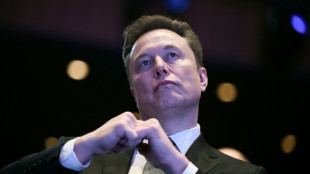
-
 Thailand continues Cambodia strikes despite Trump truce calls
Thailand continues Cambodia strikes despite Trump truce calls
-
US envoy to meet Zelensky, Europe leaders in Berlin this weekend
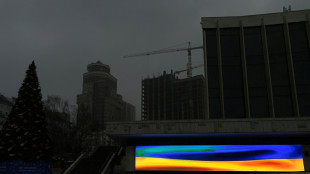
-
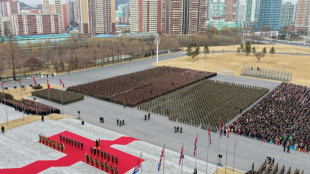 North Korea acknowledges its troops cleared mines for Russia
North Korea acknowledges its troops cleared mines for Russia
-
US unseals warrant for tanker seized off Venezuelan coast

-
 Cambodia says Thailand still bombing hours after Trump truce call
Cambodia says Thailand still bombing hours after Trump truce call
-
Machado urges pressure so Maduro understands 'he has to go'
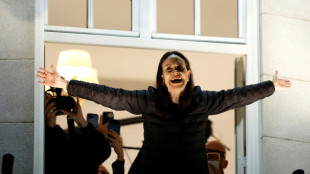
-
 Best Gold Investment Companies in USA Announced (Augusta Precious Metals, Lear Capital, Robinhood IRA and More Ranked)
Best Gold Investment Companies in USA Announced (Augusta Precious Metals, Lear Capital, Robinhood IRA and More Ranked)
-
Leinster stutter before beating Leicester in Champions Cup

-
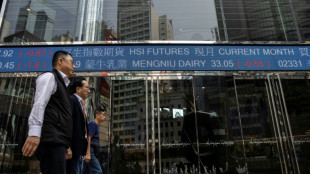 World stocks mostly slide, consolidating Fed-fuelled gains
World stocks mostly slide, consolidating Fed-fuelled gains
-
Crypto firm Tether bids for Juventus, is quickly rebuffed

-
 Union sink second-placed Leipzig to climb in Bundesliga
Union sink second-placed Leipzig to climb in Bundesliga
-
US Treasury lifts sanctions on Brazil Supreme Court justice
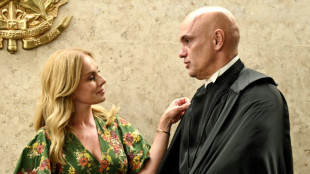
-
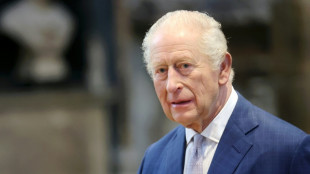 UK king shares 'good news' that cancer treatment will be reduced in 2026
UK king shares 'good news' that cancer treatment will be reduced in 2026
-
Wembanyama expected to return for Spurs in NBA Cup clash with Thunder

-
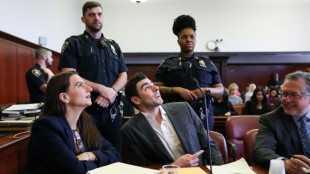 Five takeaways from Luigi Mangione evidence hearings
Five takeaways from Luigi Mangione evidence hearings
-
UK's king shares 'good news' that cancer treatment will be reduced in 2026
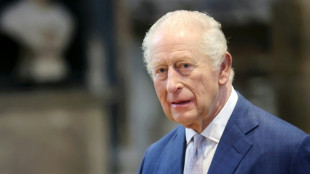
-
 Steelers' Watt undergoes surgery to repair collapsed lung
Steelers' Watt undergoes surgery to repair collapsed lung
-
Iran detains Nobel-prize winner in 'brutal' arrest

-
 NBA Cup goes from 'outside the box' idea to smash hit
NBA Cup goes from 'outside the box' idea to smash hit
-
UK health service battles 'super flu' outbreak
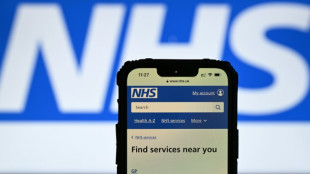
-
 Can Venezuela survive US targeting its oil tankers?
Can Venezuela survive US targeting its oil tankers?
-
Democrats release new cache of Epstein photos

-
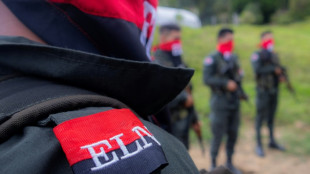 Colombia's ELN guerrillas place communities in lockdown citing Trump 'intervention' threats
Colombia's ELN guerrillas place communities in lockdown citing Trump 'intervention' threats
-
'Don't use them': Tanning beds triple skin cancer risk, study finds
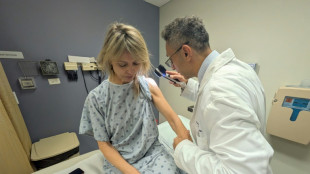
-
 Nancy aims to restore Celtic faith with Scottish League Cup final win
Nancy aims to restore Celtic faith with Scottish League Cup final win
-
Argentina fly-half Albornoz signs for Toulon until 2030

-
 Trump says Thailand, Cambodia have agreed to stop border clashes
Trump says Thailand, Cambodia have agreed to stop border clashes
-
Salah in Liverpool squad for Brighton after Slot talks - reports

-
 Marseille coach tips Greenwood as 'potential Ballon d'Or'
Marseille coach tips Greenwood as 'potential Ballon d'Or'
-
Draw marks 'starting gun' toward 2026 World Cup, Vancouver says

-
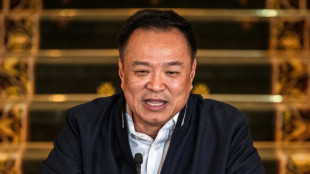 Thai PM says asked Trump to press Cambodia on border truce
Thai PM says asked Trump to press Cambodia on border truce
-
Salah admired from afar in his Egypt home village as club tensions swirl

-
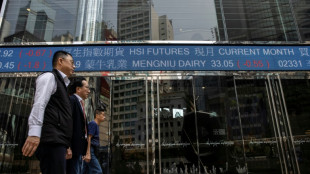 World stocks retrench, consolidating Fed-fuelled gains
World stocks retrench, consolidating Fed-fuelled gains
-
Brazil left calls protests over bid to cut Bolsonaro jail time

-
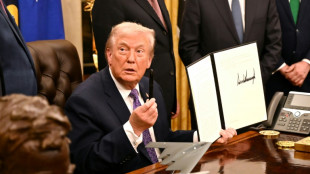 Trump attack on Europe migration 'disaster' masks toughening policies
Trump attack on Europe migration 'disaster' masks toughening policies
-
US plan sees Ukraine joining EU in 2027, official tells AFP
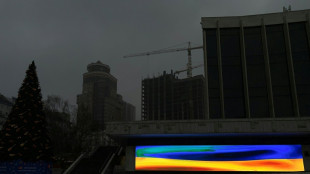
-
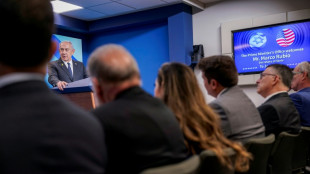 'Chilling effect': Israel reforms raise press freedom fears
'Chilling effect': Israel reforms raise press freedom fears
-
Iran frees child bride sentenced to death over husband's killing: activists
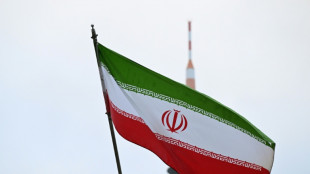
-
 No doubting Man City boss Guardiola's passion says Toure
No doubting Man City boss Guardiola's passion says Toure
-
Youthful La Rochelle name teen captain for Champions Cup match in South Africa

-
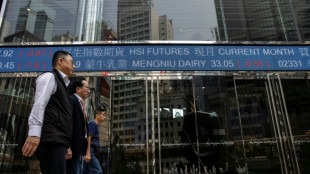 World stocks consolidate Fed-fuelled gains
World stocks consolidate Fed-fuelled gains
-
British 'Aga saga' author Joanna Trollope dies aged 82
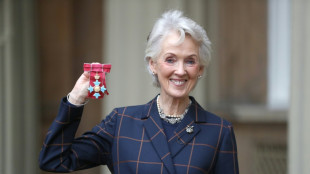
-
 Man Utd sweat on Africa Cup of Nations trio
Man Utd sweat on Africa Cup of Nations trio
-
EU agrees three-euro small parcel tax to tackle China flood

-
 Taylor Swift breaks down in Eras documentary over Southport attack
Taylor Swift breaks down in Eras documentary over Southport attack
-
Maresca 'relaxed' about Chelsea's rough patch


Secret lab developing UK's first quantum clock: defence ministry
A top-secret lab in the UK is developing the country's first quantum clock to help the British military boost intelligence and reconnaissance operations, the defence ministry said Thursday.
The clock is so precise that it will lose less than one second over billions of years, "allowing scientists to measure time at an unprecedented scale," the ministry said in a statement.
"The trialling of this emerging, groundbreaking technology could not only strengthen our operational capability, but also drive progress in industry, bolster our science sector and support high-skilled jobs," Minister for Defence Procurement Maria Eagle said.
The groundbreaking technology by the Defence Science and Technology Laboratory will reduce reliance on GPS technology, which "can be disrupted and blocked by adversaries," the ministry added.
It is not a world first, as the University of Colorado at Boulder developed a quantum clock 15 years ago with the US National Institute of Standards and Technology.
But it is "the first device of its kind to be built in the UK," the statement said, adding it could be deployed by the military "in the next five years".
A quantum clock uses quantum mechanics -- the physics of matter and energy at the atomic and subatomic scale -- to keep time with unprecedented accuracy by measuring energy fluctuations within atoms.
Accurate timekeeping is crucial for satellite navigation systems, mobile telephones and digital TV, among other applications, and may open new frontiers in research fields such as quantum science.
Companies and governments around the world are keen to cash in on the huge potential benefits quantum technology could bring.
Google last month unveiled a new quantum computing chip it said could do in minutes what it would take leading supercomputers 10 septillion years to complete.
The United States and China are investing heavily in quantum research, and the US administration has imposed tight restrictions on exporting such sensitive technology.
One expert, Olivier Ezratty, told AFP in October that private and public investment in such technology had reached $20 billion during the past five years.
The defence ministry said future research would "see the technology decrease in size to allow mass manufacturing and miniaturisation, unlocking a wide range of applications, such as use by military vehicles and aircraft".
Ch.Kahalev--AMWN
